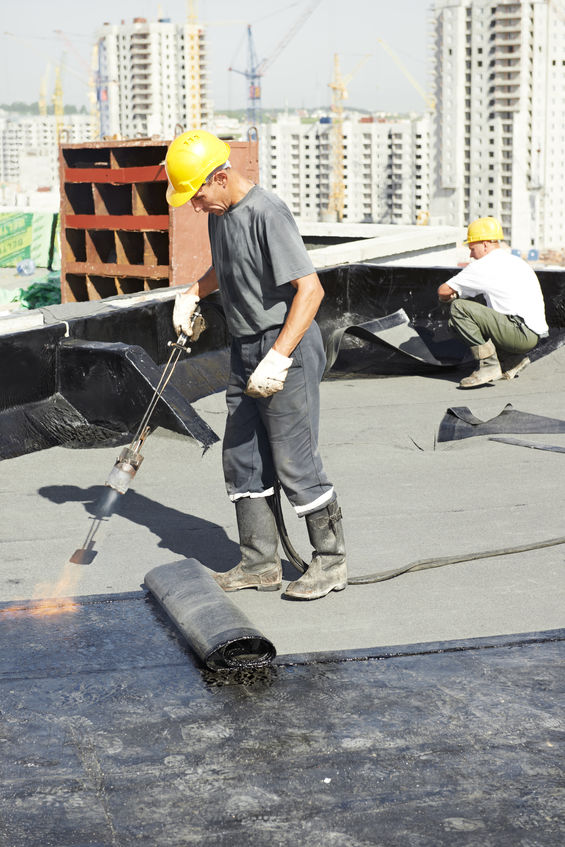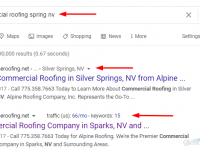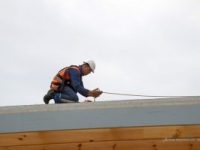Commercial Roofing That You Can Rely On
A commercial or flat roof needs regular maintenance and attention. Unfortunately, the roof is one of the first areas that can easily be neglected as time goes on. If you are interested in a no-fuss roofing structure, have you considered a single-ply installation? Single-ply membranes are generally a type of thermoplastic or rubber-based material that is adhered to the decking. To learn more about single ply roofing in Sparks, NV, reach out to Alpine Roofing Co. We can help with all your roofing needs. Connect with us today by calling 775.358.7663.
Single Ply Roofing Types
For commercial and even residential roofing, there are about three options for single-ply roofing. It’s important to note that not all single-ply options are created equal. While it may seem tempting to purchase the cheapest option, that doesn’t mean you’ll have the best quality material. However, if you are interested in high-quality options at competitive prices, then Alpine Roofing Co. is the best team to contact, especially for single-ply options.
- EPDM: EPDM is the most popular option on the market. It is manufactured to be able to withstand just about all kinds of weather and exposure. This material can go through wind, rain, chemicals, grease, and smoke and not be damaged.
- TPO: The next most popular option is TPO. Just like EPDM, it is manufactured to withstand serious exposure and harsh elements. This material is generally cheaper than EPDM which can sometimes impact the quality of material and even the quality of service.
- PVC: PVC roofing is just as popular as the other two membranes, though it is rarely mentioned. What sets it apart from the others is the fact that PVC will maintain high-reflectivity over the years, even when exposed to all the elements. This helps make it a cost-effective option as well.
You might be wondering, based on the description of single plying roofing, what’s the difference of single ply roofing vs built-up roofing? The answer is quite a bit! Single-ply gets its name from the fact that one, singular layer of material is sprayed or adhered to a roofing structure. Built-up roofing is often layers of waterproofing materials that are bound and adhered to a roof. That’s the major difference between the two. If you’re interested in learning more about these roofing structures, give Alpine Roofing Co. a call today.
Benefits of Single Ply Roofing
Like any other structure, there are single-ply roofing pros and cons. It can be easy to focus on the cons or the disadvantages, but the fact of the matter is, a single-ply roof can be very advantageous.
- Light Reflection: One of the main benefits of a single-ply roof is light reflection. This will help to keep your space cool while also helping to reduce your energy costs.
- Easy Installation: Any single-ply roof is actually very easy to install. Whether it is being sprayed on or adhered to, most contractors can usually get it done in less than a day.
- Easy Maintenance: These materials are also very easy to maintain. They will need to be washed or observed now and then, but you won’t need to reseal the material for several years.
- Flexible: Since single-ply roofs are often rubber-based materials, they are highly flexible. This prevents them from cracking, blistering, or bubbling when the weather takes drastic dips and turns.
As mentioned, there are several disadvantages to this structure. Probably the biggest disadvantage of a single-ply roof is how thin the material actually is. Even once it’s cured, a single ply roof is not thick. This can make it more susceptible to punctures or a wind and storm damage insurance claim. If you are curious about this structure for your property, feel free to reach out to Alpine Roofing Co. for more information.
Frequently Asked Questions
- How long does single ply roofing last?
- Most single ply roofing will last between 20 and 25 years. You will need to maintain the material and the structure to ensure longevity. It’s usually recommended to have the roof resealed every 15-20 years.
- Is EPDM roofing any good?
- EPDM is the most recommended single ply roofing option in the industry. Contractors love it because it is incredibly easy to install and maintain. Property owners choose it because it is inexpensive, durable, and long-lasting.
- Is TPO roofing good?
- TPO is just as good as EPDM, but for a fraction of the cost. There are some differences like the fact that TPO may need to be applied in multiple layers. This is because can be thinner or not as reliable as EPDM.
- Is TPO better than EPDM?
- TPO is just as good as EPDM, but it is not as popular as EPDM. That’s because TPO is not always as reliable as EPDM. Regardless, in the opinion of most roofing contractors, TPO neither better nor worse than EPDM.
- What is the difference between PVC and TPO?
- Functionally, TPO and PVC provide the same service. However, the differences come in how they are manufactured. There are chemical differences in the material makeup. The two are chemically different which can also change how they are applied, installed, and maintained.




